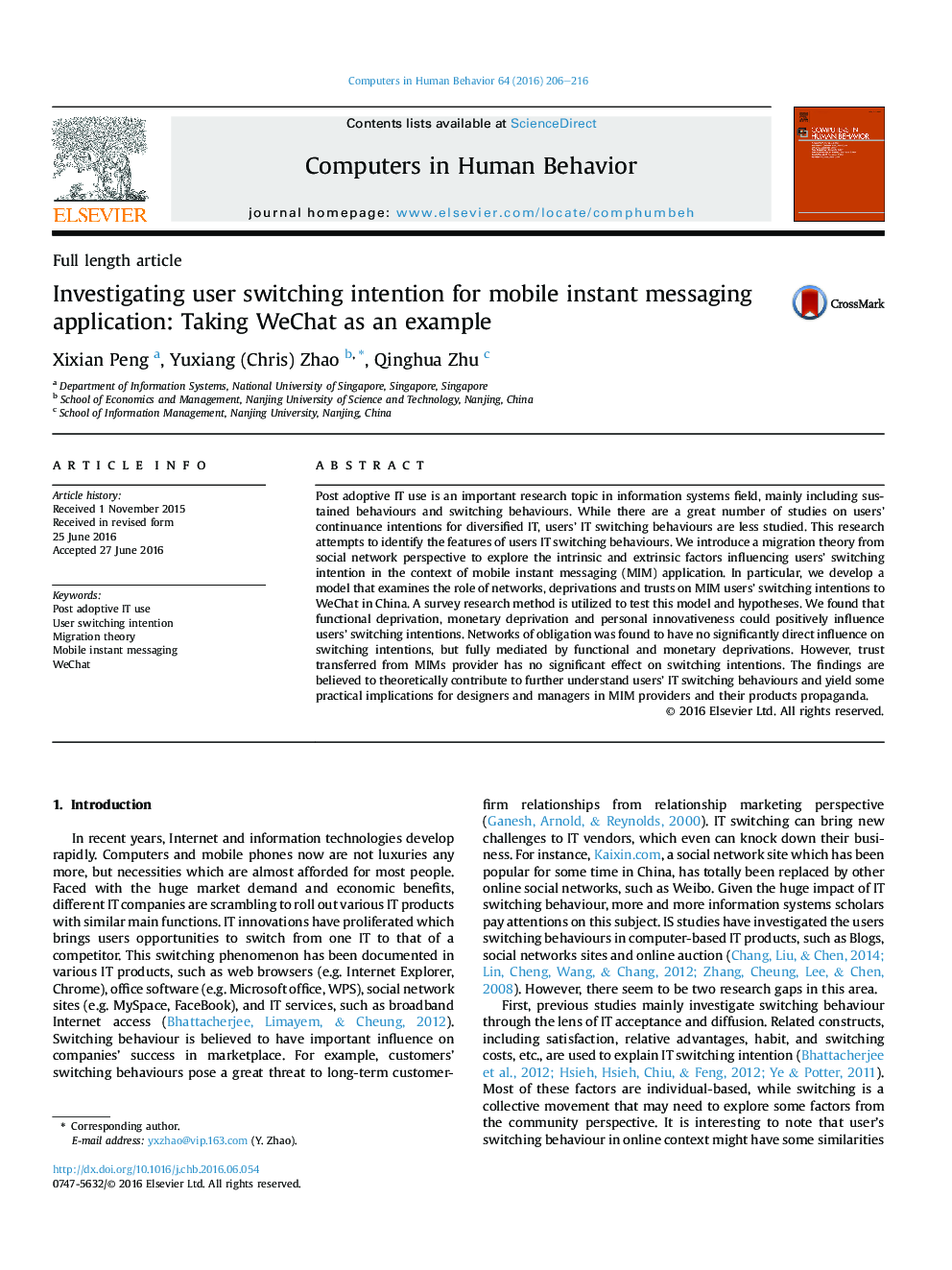| Article ID | Journal | Published Year | Pages | File Type |
|---|---|---|---|---|
| 6836463 | Computers in Human Behavior | 2016 | 11 Pages |
Abstract
Post adoptive IT use is an important research topic in information systems field, mainly including sustained behaviours and switching behaviours. While there are a great number of studies on users' continuance intentions for diversified IT, users' IT switching behaviours are less studied. This research attempts to identify the features of users IT switching behaviours. We introduce a migration theory from social network perspective to explore the intrinsic and extrinsic factors influencing users' switching intention in the context of mobile instant messaging (MIM) application. In particular, we develop a model that examines the role of networks, deprivations and trusts on MIM users' switching intentions to WeChat in China. A survey research method is utilized to test this model and hypotheses. We found that functional deprivation, monetary deprivation and personal innovativeness could positively influence users' switching intentions. Networks of obligation was found to have no significantly direct influence on switching intentions, but fully mediated by functional and monetary deprivations. However, trust transferred from MIMs provider has no significant effect on switching intentions. The findings are believed to theoretically contribute to further understand users' IT switching behaviours and yield some practical implications for designers and managers in MIM providers and their products propaganda.
Keywords
Related Topics
Physical Sciences and Engineering
Computer Science
Computer Science Applications
Authors
Xixian Peng, Yuxiang (Chris) Zhao, Qinghua Zhu,
